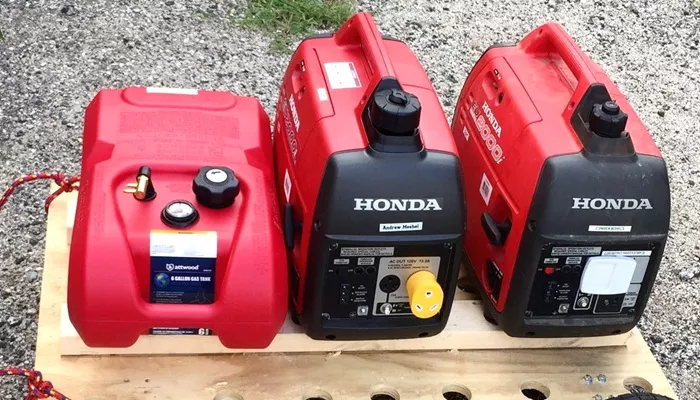A 30-amp RV is designed to handle a specific electrical load, typically supporting essential appliances like air conditioners, microwaves, refrigerators, and lighting systems. The generator size must align with these requirements to ensure uninterrupted power without overloading the system. Unlike residential setups, RVs demand portable and efficient energy solutions that balance output, noise, and fuel efficiency.
The key is to match the generator’s capacity to the RV’s peak power consumption. For a 30-amp system, this generally means selecting a generator that can deliver consistent power while accommodating startup surges from high-demand appliances. Overestimating or underestimating the generator size can lead to inefficiency, equipment damage, or insufficient power during critical moments2.
Types of Generators Suitable for a 30 Amp RV
Gas-Powered Generators
Gas-powered generators are a traditional choice for RV owners due to their widespread availability and high power output. However, they are often noisy and emit fumes, which can disrupt the outdoor experience and violate campground regulations. Many campsites restrict their use due to noise pollution and environmental concerns1. While these generators can provide ample power, their drawbacks make them less ideal for frequent or quiet camping scenarios.
Inverter Generators
Inverter generators are a modern alternative that combines portability with quieter operation. These units adjust their engine speed to match the power demand, improving fuel efficiency and reducing noise. For a 30-amp RV, inverter generators are particularly advantageous because they produce clean, stable power suitable for sensitive electronics like laptops and smartphones. Brands like BSLBATT offer hybrid models designed explicitly for RVs, integrating quiet technology to enhance usability in shared outdoor spaces2.
Solar Power Systems
Solar energy is an eco-friendly and silent option for RV owners willing to invest in renewable energy. Solar panels paired with lithium-ion batteries can provide a steady power supply without the need for fuel. While solar systems require upfront costs and careful sizing based on energy needs, they eliminate noise and long-term fuel expenses. Portable solar kits or roof-mounted panels can recharge batteries during the day, making them ideal for off-grid adventures2.
Factors to Consider When Choosing a Generator
Noise Levels
Noise is a critical factor for campground compliance and personal comfort. Gas generators often exceed acceptable decibel levels, whereas inverter generators and solar systems operate quietly. For example, BSLBATT’s RV-ready hybrid generator emphasizes “quiet technology” to minimize disruptions2.
Fuel Efficiency and Runtime
A generator’s runtime determines how long it can power the RV without refueling. Inverter generators excel here due to their adaptive engine speeds, which conserve fuel. Solar systems, while fuel-free, depend on sunlight availability and battery storage capacity.
Portability and Weight
Heavy generators can be cumbersome for RV travel. Portable inverter generators and lightweight solar kits are easier to transport and store. Gas models, while powerful, often weigh significantly more, impacting mobility1.
Compatibility and Safety
Ensure the generator’s output matches the RV’s electrical system. A 30-amp RV typically requires a generator with a 120-volt output and sufficient wattage to handle simultaneous appliance use. Overloading the system can trip breakers or damage equipment.
Recommended Solutions for a 30 Amp RV
Hybrid Inverter Generators
A hybrid inverter generator, such as the BSLBATT model mentioned in search results, balances power output and quiet operation. These units are engineered to support 30-amp RVs, providing reliable energy for air conditioners, microwaves, and other essentials without violating noise restrictions2.
Solar-Battery Combinations
For eco-conscious travelers, a solar panel array paired with lithium-ion batteries offers a sustainable solution. These systems require careful sizing based on daily energy consumption and sunlight exposure but provide silent, maintenance-free power. Portable solar kits are particularly useful for RVs with limited roof space2.
Dual-Fuel Options
Some generators allow switching between gasoline and propane, offering flexibility in fuel choice. Propane burns cleaner and stores longer than gasoline, making it a practical backup for extended trips.
Conclusion
Selecting the right generator for a 30-amp RV involves evaluating power needs, noise tolerance, fuel preferences, and portability. Inverter generators stand out for their quiet, efficient performance, while solar systems offer a renewable alternative for off-grid adventures. Gas-powered models, though powerful, are best suited for remote locations where noise and emissions are less restrictive. By prioritizing compatibility and sustainability, RV owners can ensure a reliable power supply that enhances their travel experience without compromising comfort or environmental responsibility.

